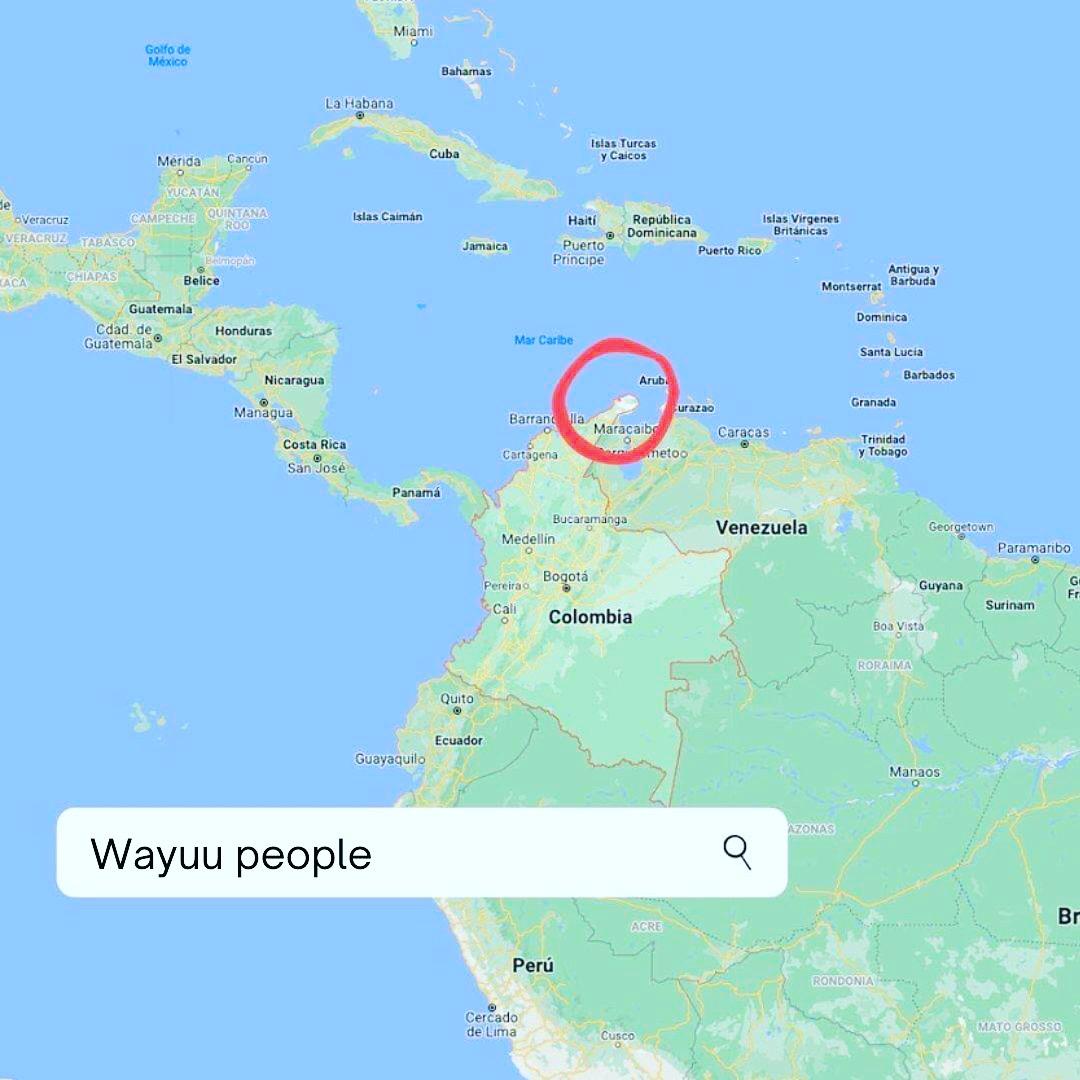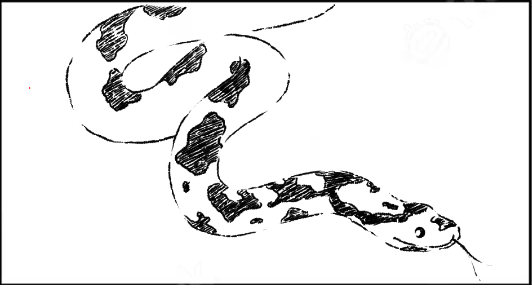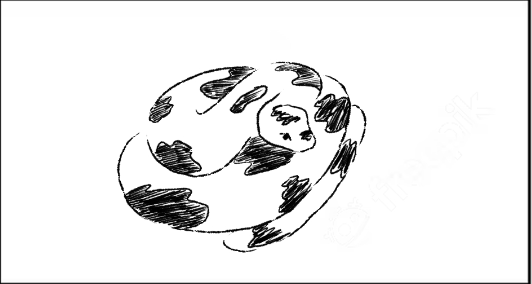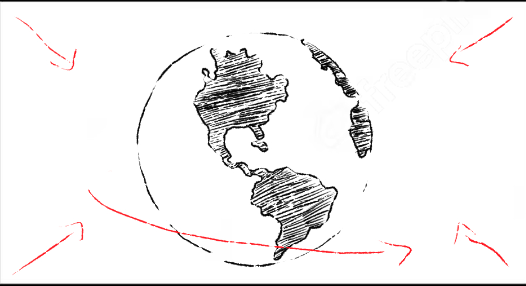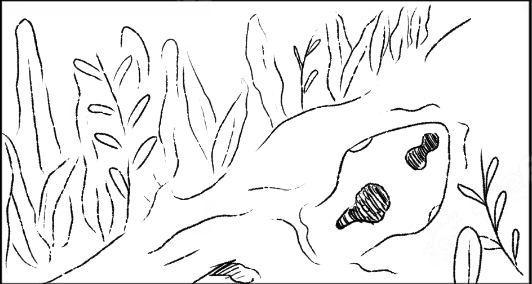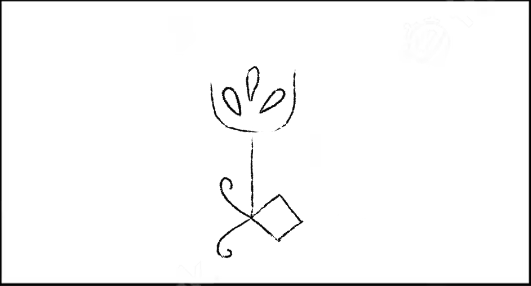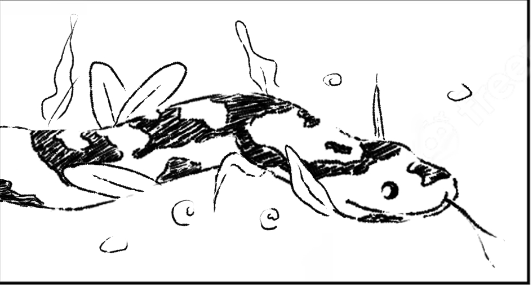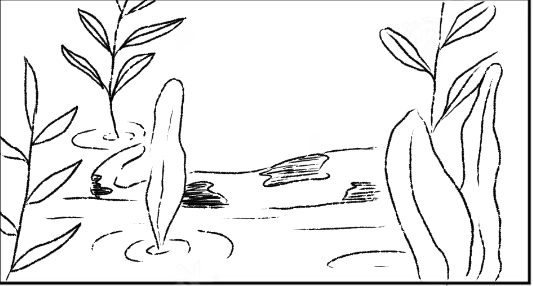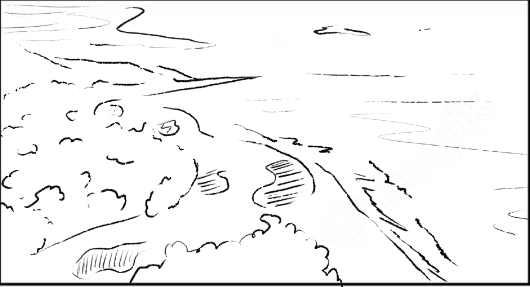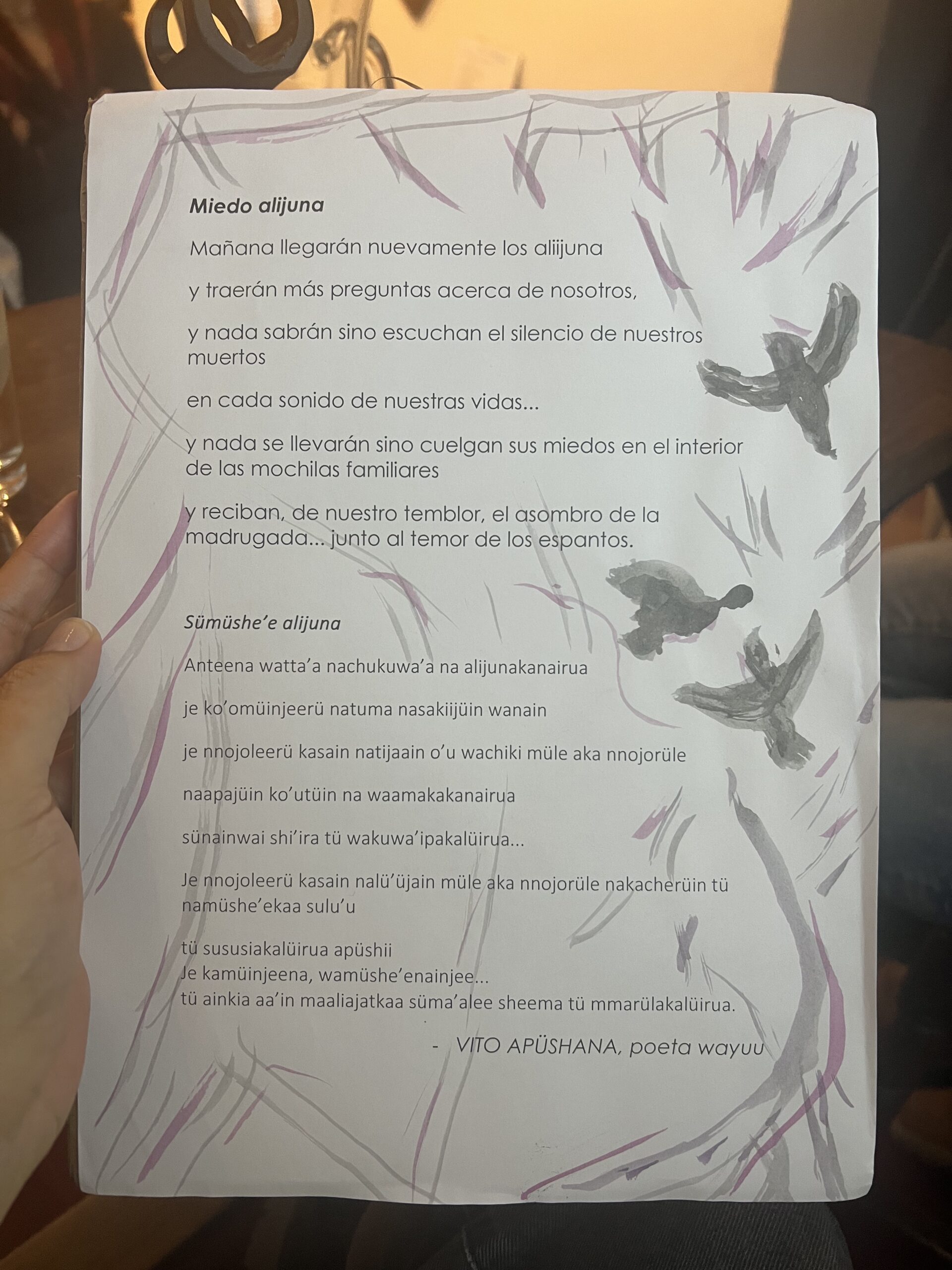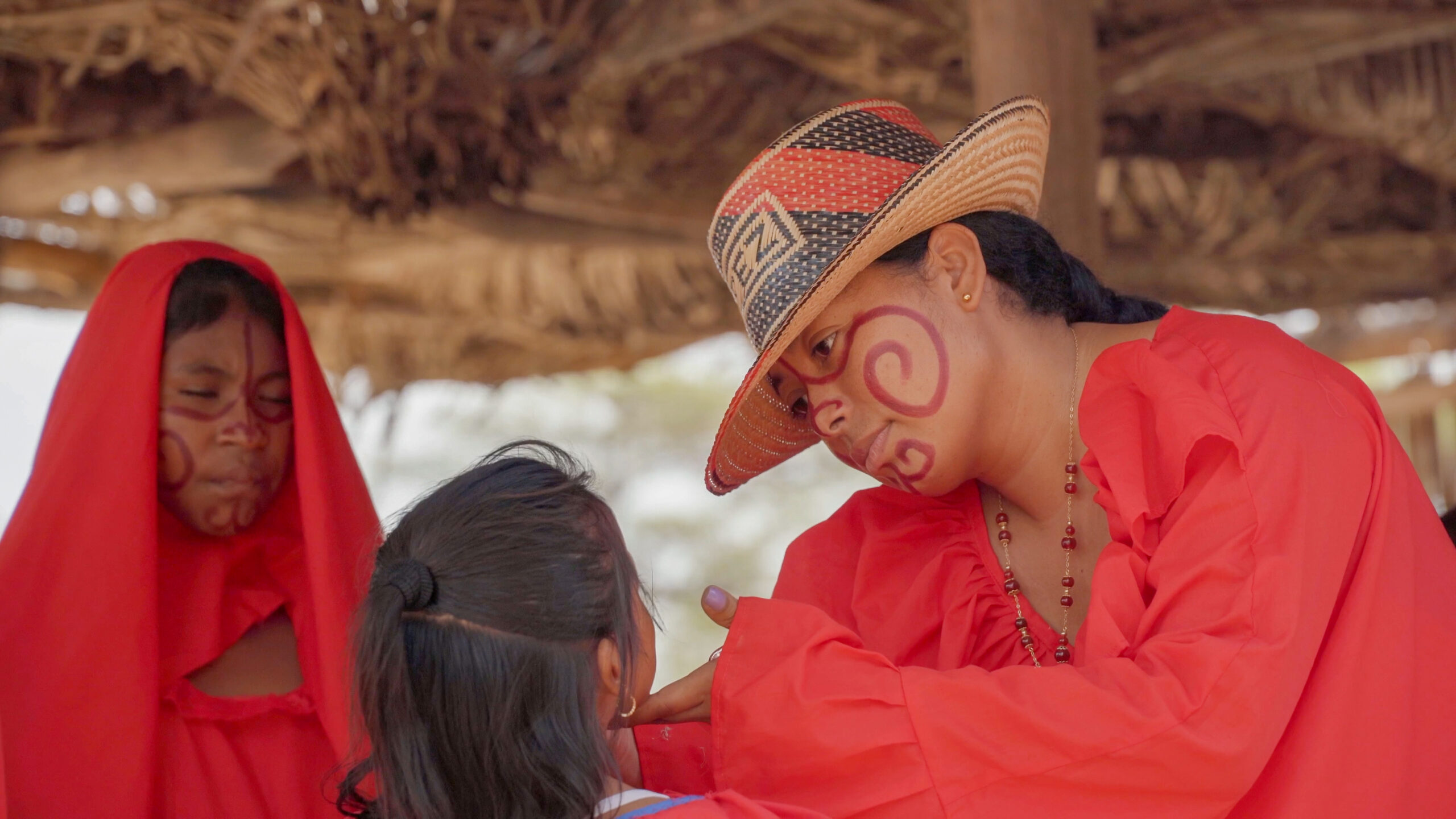
Yonna – Wayuu dance
La Guajira is Wayuu territory.
The Wayuu Indigenous community, the largest in Colombia, includes around 400,000 members who have inhabited the Guajira Peninsula since ancestral times. This region is home to three distinct ecosystems: in the south, the tropical dry forests of Lower Guajira; in the center, the Ranchería River basin in Middle Guajira; and in the north, the arid landscapes of Upper Guajira, with dry savannas and desert. Depending on their location, the Wayuu have developed ways of life adapted to their environment—farming, herding, and fishing—always guided by practices to preserve freshwater, a scarce resource across much of the territory. However, the ongoing water crisis has severely impacted these traditional activities, long the foundation of their economy.
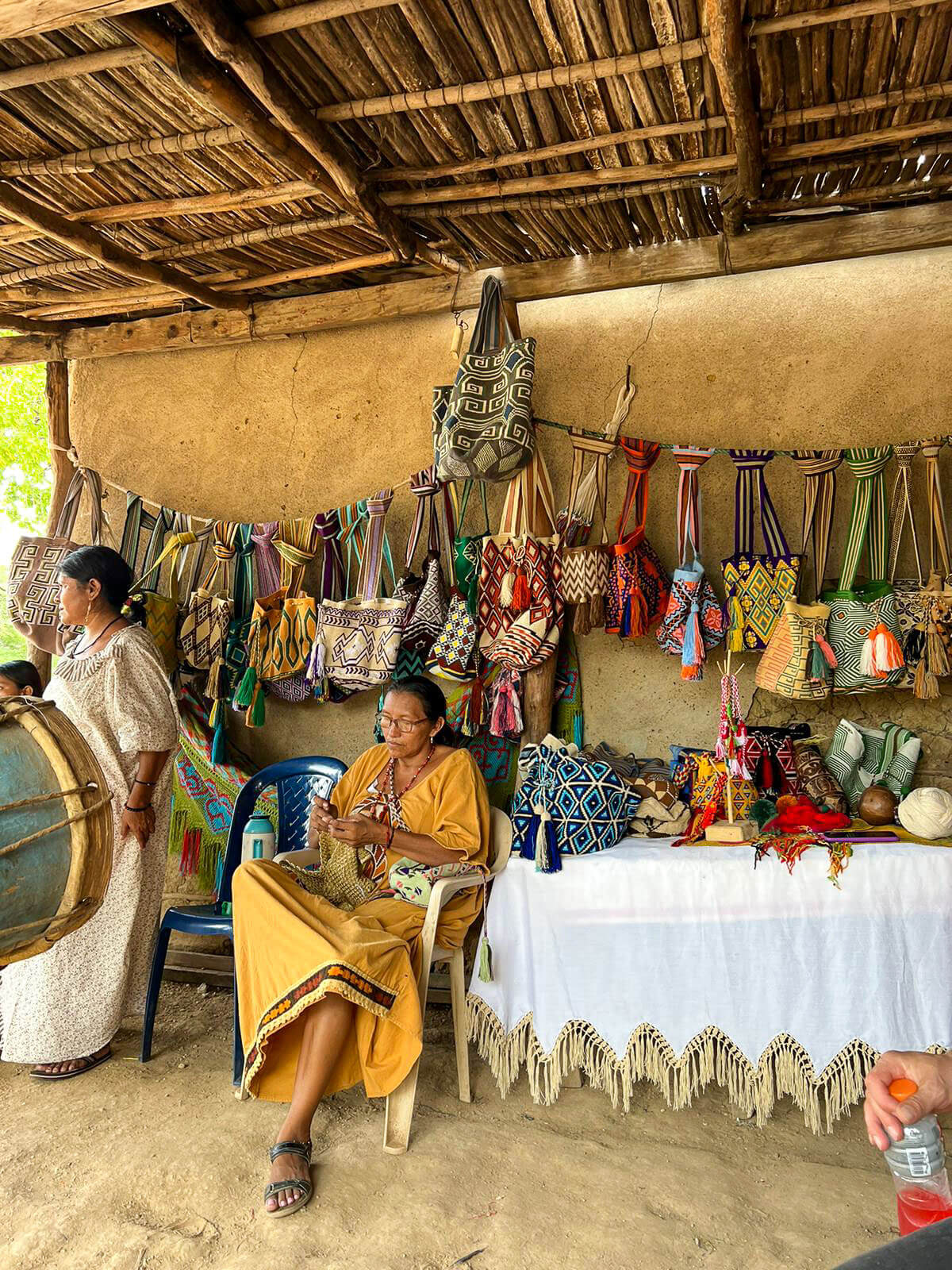
Women weavers
Wayuu society is organized into rancherías—small communities of 20 to 50 families from the same clan. These clans are matrilineal: lineage is passed down through the mother, and daughters remain in the community after marriage, thus expanding the extended family. Women are the heart of Wayuu culture: they care for others, preserve the language and traditions, and weave one of the most recognized forms of Indigenous textile art in the country. Weaving is learned as part of their initiation ritual: after their first menstruation, girls enter a period of seclusion, guided by the women of their clan. During this time, they leave childhood behind and prepare for adult life. Today, amid a water crisis and the loss of traditional livelihoods, weaving has taken on even greater significance. Many Wayuu women now support their families through their craft, reaffirming their central role in the cultural and economic resilience of their people.
Wayuunaiki
For the Wayuu people, the spoken word is sacred. Through it, their cosmogony is passed down, memory is preserved, and balance between clans is maintained. Just as weaving is a metaphor for building the world, speaking well is an art that “weaves” relationships: a well-crafted speech can heal wounds, restore alliances, or open spiritual paths.
Wayuunaiki, their ancestral language, is not merely a means of communication, but the vessel through which they understand the world. Within it dwell concepts, visions, and knowledge born from the spirits of the desert, the winds, and invisible forces. Through wayuunaiki, oral transmission carries the stories, legends, and myths that explain the origin of the universe, the values of the Wayuu people, and the place of human beings in the world.
Wayuu poem in the photo (Alijuna: Non-indigenous):
Fear of the Alijuna
Tomorrow the alijuna will come again,
bringing more questions about us.
But they will learn nothing
if they do not listen to the silence of our dead,
echoing in every sound of our lives…
And they will take nothing with them
unless they hang their fears
inside the ancestral threads of our mochilas,
and receive—through our trembling—
the wonder of the dawn,
alongside the fear of spirits that still linger.

